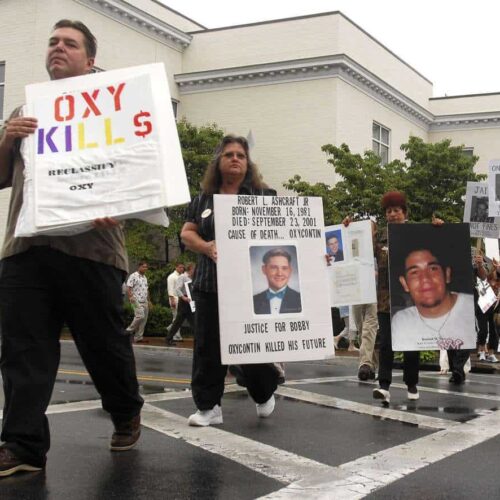Introduction
A leading Democratic senator is investigating the nation’s top opioid manufacturers to determine whether they contributed to overuse of the painkillers at the center of a deadly addiction crisis that has led to nearly 200,000 overdose deaths in the past 15 years.
Sen. Claire McCaskill of Missouri on Tuesday asked the manufacturers of the nation’s five biggest selling prescription opioid products for internal information including marketing plans, sales records and contributions to third-party advocacy groups.
“We have an obligation to everyone devastated by this epidemic to find answers,” McCaskill said in a prepared statement. “All of this didn’t happen overnight. It happened one prescription and marketing program at a time.”
The Senate investigation comes in the wake of multiple media reports on drug companies’ role in the ongoing addiction epidemic, including last year’s Politics of Pain series by The Center for Public Integrity and The Associated Press.
McCaskill’s letters to Purdue Pharma, Johnson & Johnson’s Janssen Pharmaceuticals, Insys Therapeutics, Mylan and Depomed specifically ask for information about any payments the companies made to 17 third-party advocacy groups — including the Pain Care Forum, a little-known but powerful coalition of drug companies and nonprofit groups highlighted in the Politics of Pain series.
At least 13 of the other advocacy groups mentioned in her letters have belonged to that coalition organized by the chief lobbyist for OxyContin-maker Purdue Pharma, according to the Center for Public Integrity and AP’s review of its membership directories.
The AP/Center for Public Integrity series found that members of the Pain Care Forum met with some of the highest-ranking health officials in the federal government, while quietly working to influence proposed regulations on opioids and promote legislation and reports on the problem of untreated pain.
The drug companies and allied groups adopted a 50-state strategy to help kill or weaken measures aimed at stemming the tide of prescription opioids. The series found they spent more than $880 million nationwide on lobbying and campaign contributions from 2006 through 2015 — more than eight times what the influential gun lobby recorded for similar activities during that same period.
“This epidemic is the direct result of a calculated sales and marketing strategy major opioid manufacturers have allegedly pursued over the past 20 years to expand their market share and increase dependency on powerful — and often deadly — painkillers,” McCaskill wrote.
McCaskill is the ranking Democratic lawmaker on the Senate Committee on Homeland Security and Governmental Affairs. The Republican chairman, Sen. Ron Johnson of Wisconsin, did not sign the letters seeking the information from the drug manufacturers, but was sent copies of them.
Purdue did not respond to the Center for Public Integrity’s request for comment Tuesday. But Bob Josephson, a spokesman for Purdue, told USA Today that the company was reviewing McCaskill’s letter and planned to respond accordingly.
Spokespeople for Depomed and Janssen Pharmaceuticals told the Center they planned to respond, as well.
“We believe that we have acted appropriately, responsibly and in the best interests of patients regarding our opioid pain medications, which are FDA-approved and carry FDA-mandated warnings about the known risks of the medications on every product label,” said Jessica Castles Smith, a spokesperson for Janssen Pharmaceuticals.
Mylan’s Nina Devlin said her company hopes the senator expands her interest to include the top 10 suppliers of opioid drugs to the U.S. market, noting that Mylan ranked as the 17th largest supplier of opioids sold in the U.S. in 2016 and represented approximately 1 percent of the domestic opioid market. “Despite being a small player in this area, we are committed to helping find solutions to the issue of opioid abuse and misuse,” she said.
Insys did not immediately respond to requests for comment.
The AP contributed.
Read more in Money and Democracy
Money and Democracy
What voters want: How long should former lawmakers wait before lobbying?
Money and Democracy
Supreme Court a millionaire’s club
At least six justices — and potentially all nine — are worth seven figures






Join the conversation
Show Comments